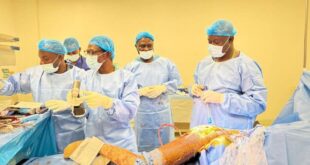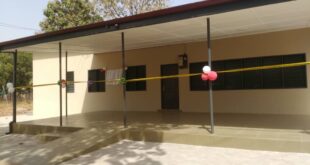Tamale, Ghana – A senior lecturer of the the University for Development Studies (UDS), Faculty of Education, Dr. Ibrahim M. Gunu has pleaded with government to reopen basic schools in coronavirus low risk areas.
He argues that the continuous closure of basic schools in Ghana as a result of the COVID 19 pandemic, could lead to an upsurge in early marriages, school dropouts and child labour prevalent in Northern Ghana.
In an article, Dr. Gunu stated that, “I want to commend government for the continuous engagement of significant stakeholders in the education sector and I suggests that government should at least reopen basic schools in low risky areas in Ghana by September, 2020.”
“We need to know that children cannot wait for that long. Children learn less, and lose the habit of learning. In some parts of Ghana if schools are not reopened, students may give up their studies and start work or get married. Children are more likely going to suffer abuse, malnutrition and poor mental health.”
“Parents who have nowhere to drop their children struggle to go to work.”
According to Dr. Gunu, Ghana’s high recoveries rate coupled with government’s stringent measures put in place to curb the pandemic’s widespread are enormous, hence his assertion.
Below is the full text
The world has been under a lockdown for some time now as a result of COVID-19. Globally, schools, Colleges and Universities were closed as a result of the fear of spread of the disease.
The continuous delay in reopening schools, Colleges, and Universities across the country, generated psychological effects on students, which can be expressed as anxiety, fear, worry, and even trauma, among others.
In search of normalcy regarding teaching and learning in Ghanaian Schools, Colleges and Universities, the government of Ghana provided guidelines and support for these institutions, which I consider as a good leadership direction.
Based on the guidelines, Universities in Ghana resorted to remote instruction in response to the COVID-19 pandemic.
The end of the school year in Ghana is associated with examinations. These are often used to select or certify students as they move from one level to the next or into the workforce.
Concerns regarding the question of what it means to have spent years working towards an exam or a degree only to graduate in one of the longest waiting periods became an issue.
Subsequently, final year students were recalled to take their examination in the Universities, Colleges, Junior High Schools (JHS) and Senior High Schools (SHS).
Final year students in the Colleges of Education and some Universities have successfully finished their final examinations.
It is important to mention that final year students participating in examination is a good idea. In my opinion, it will reduce the unbearable psychological pressure on them.
Recommendations
The Ghana Education Service (GES) in collaboration with the Ghana Health Service (GHS) should ensure the continuous observance of health protocols in schools in order to contain the spread of the COVID 19 pandemic in schools.
The most vulnerable teachers should stay at home. Reduce class sizes, reduce contact hours for a start.
Reorganize timetables to prevent crowding at school gates, ensure compulsory wearing of masks and separate desks with recommended spacing dimension.
Government should allow continuing students in grades 1-8 (Primary 1 to JHS2) to be promoted to the next grade without taking examinations.
Remedial measures should be put in place to support the students and government should avoid a situation where the entire academic year will be cancelled.
The reopening of schools should not be a partisan issue, as it has sadly become in Ghana, where some people will assume it to be bad idea.
The teacher unions should not take political stands and rather work with the government to support our children in the schools.
Conclusion
I wish to thank government for taking the needed steps to ensure normalcy in our schools (JHS and SHS), Colleges and Universities in Ghana.
Whilst appreciating the fact that many parents are scared that schools are somehow crowded, that small children may not observe social distancing, cases are rising and many other examples, equally we need to know that recoveries are high and the cost of missing school is huge.
This unprecedented crisis calls for a collaborative efforts for which reason, parents, teachers, politicians and other significant stakeholders should support the students and stop creating fear and panic as this will not support the growth and development of the nation.
Source: Abdul Karim Naatogmah
 Savannah News Online Reporting Only What Matters Most
Savannah News Online Reporting Only What Matters Most



